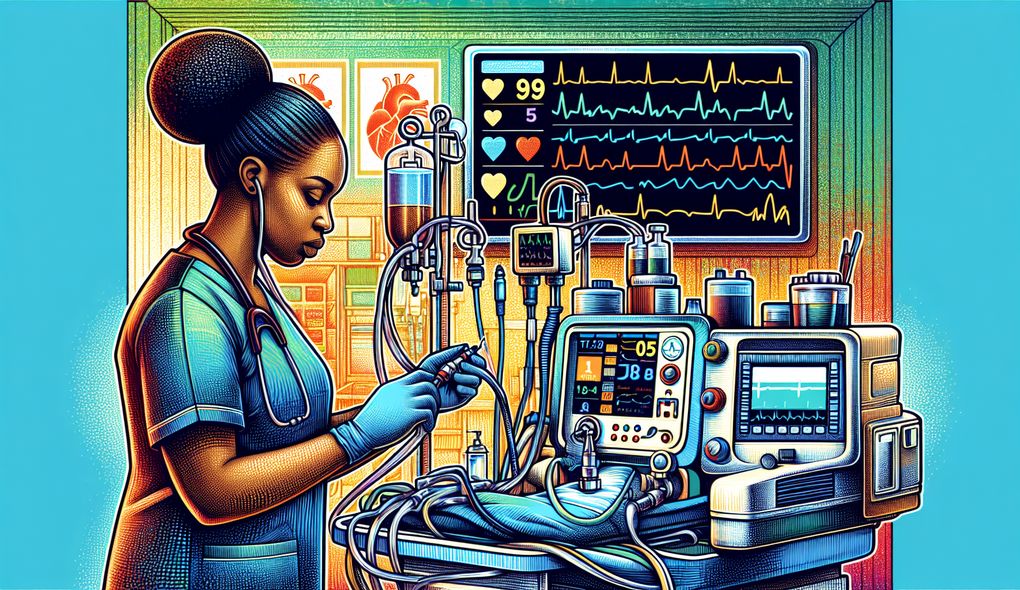Tell me about a time when you had to adapt quickly to a fast-changing scenario during a surgery or procedure.
INTERMEDIATE LEVEL

Sample answer to the question:
During a surgery, I had to quickly adapt to a fast-changing scenario when the patient's blood pressure dropped significantly. I immediately implemented appropriate measures to stabilize the patient, including administering intravenous fluids and adjusting the anesthesia levels. I communicated the situation to the surgical team and collaborated with them to ensure the patient's safety and comfort. In the end, the patient's blood pressure was stabilized, and the procedure was completed successfully.
Here is a more solid answer:
During a surgery, I encountered a fast-changing scenario when the patient experienced a severe allergic reaction to a medication. As soon as I recognized the symptoms, I immediately stopped the administration of the medication and alerted the surgical team. I swiftly adjusted the anesthesia plan to ensure the patient's safety and comfort, while also preparing for any potential complications. I effectively communicated the situation to the team and collaborated with them to devise an alternative treatment approach. By promptly adapting to the changing scenario and implementing appropriate measures, we successfully managed the patient's allergic reaction and completed the surgery without further complications.
Why is this a more solid answer?
The solid answer provides a more comprehensive description of a specific scenario in which the candidate had to adapt quickly to a fast-changing scenario during a surgery. It showcases the candidate's critical thinking skills, adaptability, responsiveness, and communication abilities. The answer includes specific details about recognizing and addressing a severe allergic reaction, collaborating with the surgical team, and successfully managing the situation. However, it can still be improved by providing more details about the candidate's problem-solving approach and the outcome of the surgery.
An example of a exceptional answer:
During a surgery, I encountered a fast-changing scenario when a power outage occurred in the operating room. With the sudden loss of lights and equipment, I immediately assessed the situation and prioritized patient safety. Drawing on my experience and knowledge of backup systems, I quickly informed the surgical team about the situation and coordinated efforts to ensure a seamless transition to backup power sources. I efficiently adjusted the anesthesia plan, ensuring the patient remained stable during the power outage. By effectively communicating with the team, we calmly continued the surgery using alternative lighting and manual instruments until power was restored. Our adaptability and responsiveness allowed us to complete the procedure successfully, with minimal disruption and without compromising patient care.
Why is this an exceptional answer?
The exceptional answer provides a highly detailed and comprehensive description of a specific scenario in which the candidate had to adapt quickly to a fast-changing scenario during a surgery. It not only showcases the candidate's critical thinking skills, adaptability, responsiveness, and communication abilities but also demonstrates their high-level problem-solving skills and strategic planning. The answer includes specific details about handling a power outage, coordinating efforts with the surgical team, adjusting the anesthesia plan, and successfully completing the surgery. It highlights the candidate's ability to remain calm under pressure and ensure patient safety. The answer could be further enhanced by discussing the candidate's exceptional problem-solving approach and the impact of their actions on the overall surgery.
How to prepare for this question:
- Familiarize yourself with different types of fast-changing scenarios that can occur during surgeries or procedures, such as allergic reactions, equipment failure, or unforeseen complications.
- Reflect on past experiences where you had to adapt quickly to changing situations during surgeries or procedures. Identify specific details and outcomes to effectively convey your abilities during interviews.
- Practice communicating complex medical situations in a clear and concise manner to demonstrate effective communication skills.
- Develop a problem-solving mindset and emphasize your ability to think critically and make quick decisions in high-stress situations.
- Stay updated on advancements in anesthesia techniques, equipment, and best practices to showcase your commitment to continuous learning and staying current in the field.
What are interviewers evaluating with this question?
- Adaptability
- Responsiveness
- Critical Thinking
- Communication

